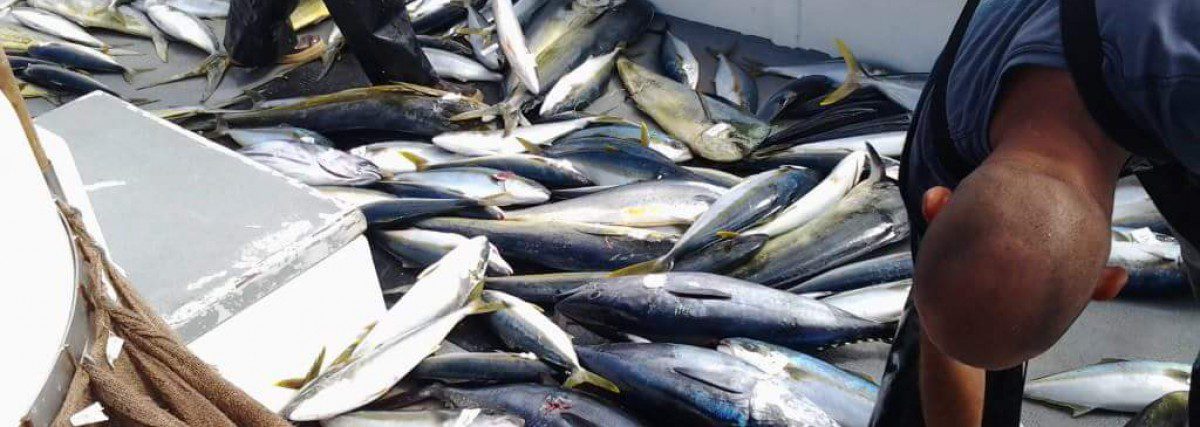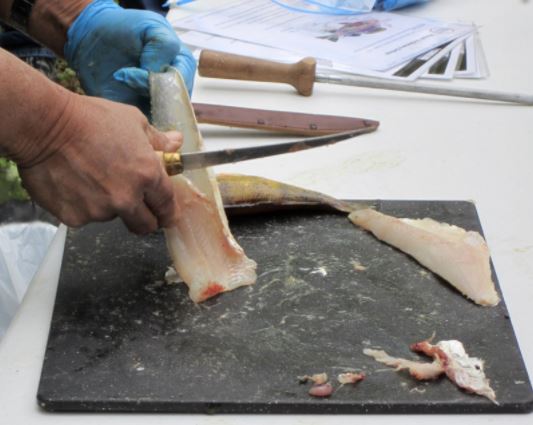Fillet Knives For Fish
 For those fishermen fond of cooking their catch, nothing is more necessary than a quality fillet knife. Fillet knives for fish cleaning purposes are widely available. With a little bit of research added to some experience, you should be able to find one that suits your needs.
For those fishermen fond of cooking their catch, nothing is more necessary than a quality fillet knife. Fillet knives for fish cleaning purposes are widely available. With a little bit of research added to some experience, you should be able to find one that suits your needs.
What Makes A Good Fillet Knife?
Length
Most fillet knives for fish cutting are between 4 and 9 inches in length.
Quality of steel
Factors from raw material, to construction process, to craftsmanship will dictate the quality of steel.
Flex of the steel
Steel flex or bend can make or break the knife. Shorter knives should have more flex than longer knives.
Knife handle
Typical handles are made of wood, rubber, and plastic. Each have their pros and cons.
 Brand
Brand
I’ve always believed in brand. I like knowing at least that my money is put into a trusted product, better if it’s guaranteed! I’ll suggest a couple good ones as we go.
Fishing boats get nasty so don’t bring your good blade!
Fallkniven knives are among the best out there. From a Swedish family business opened in 1984. They are knife and fishing experts.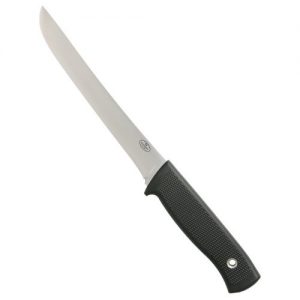
Fallkniven Knives 57 F4 Quartering/Fillet Fixed Blade Knife with Black Handles
What Length Of Blade Should You Get?
I suggest owning two fillet knives for fish that you want to keep. An 8 inch and a 4 inch blade should do nicely. Ocean fishing and the variety of species really asks for two blades. The 6 inch blade featured above would be perfect for kitchen/home use.
How Do You Know The Quality Of Steel Is Good?
This takes some product investigation. Stainless steel is very hard steel, and works pretty well. Companies such as Fallkniven use laminate steel which is at least 20% stronger than stainless steel.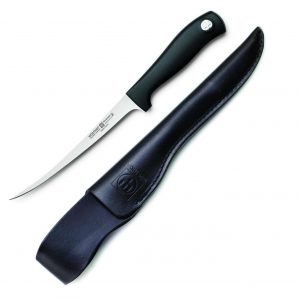
Wusthof Silverpoint Ii 7-inch Fillet Knife With Leather Sheath
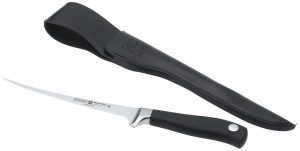 Wusthof Grand Prix II 7-Inch Fillet Knife with Leather Sheath
Wusthof Grand Prix II 7-Inch Fillet Knife with Leather Sheath
How Can You Tell If The Blade Flexes Enough?
One good test is to put the blade point down and push. With a 4 inch knife the blade should bend about 1 inch from point to center. An 8 inch blade should still flex, but typically not as much. The extra length often requires a thicker steel structure.
Which Style Of Handle Is The Best?
Wood
Wood handles are the classic handle. They are durable, and will wear well with time. Cons are that they can get slippery when wet presenting obvious concerns. They can also get stinky if the wood soaks up fish oils.
Rubber
Rubber handles provide good grip. The user can squeeze the handle which makes cutting more comfortable. Cons are limited durability leading to quicker replacement periods.
 Bubba Blade 9-Inch Flex Fillet Knife
Bubba Blade 9-Inch Flex Fillet Knife
Plastic
Plastic handles provide a good middle ground. They will last longer than rubber handles, but lose the grip (really not an issue for me). They can get sun worn and crack, but hold up reasonably well.
We are now so much better prepared to find fillet knives for fish cleaning (and consuming). What is your favorite knife? Have a fish cleaning story? Leave a comment or email Geoff@fishtfight.com. I’m always glad to hear from you.
Remember…be careful!

